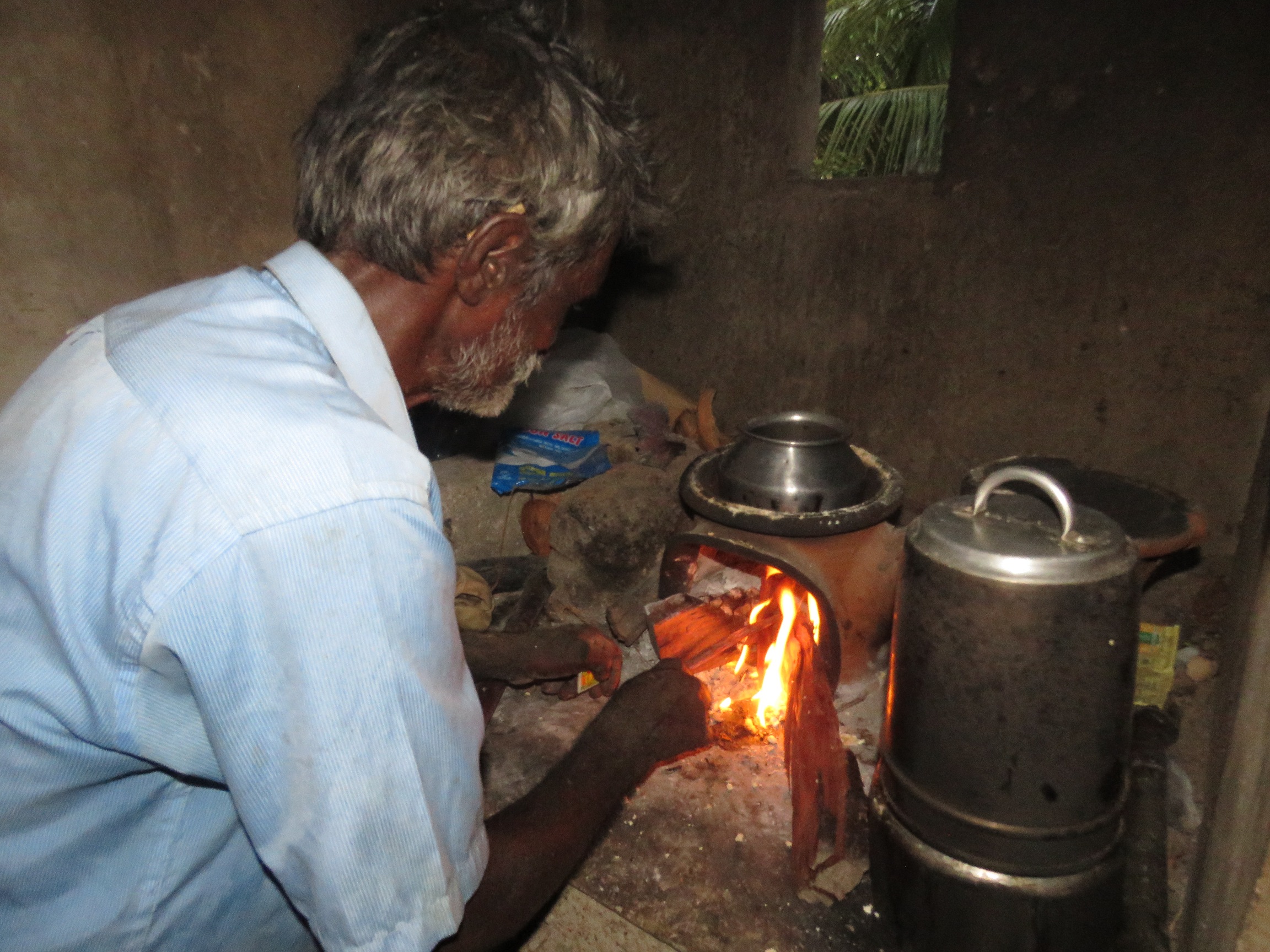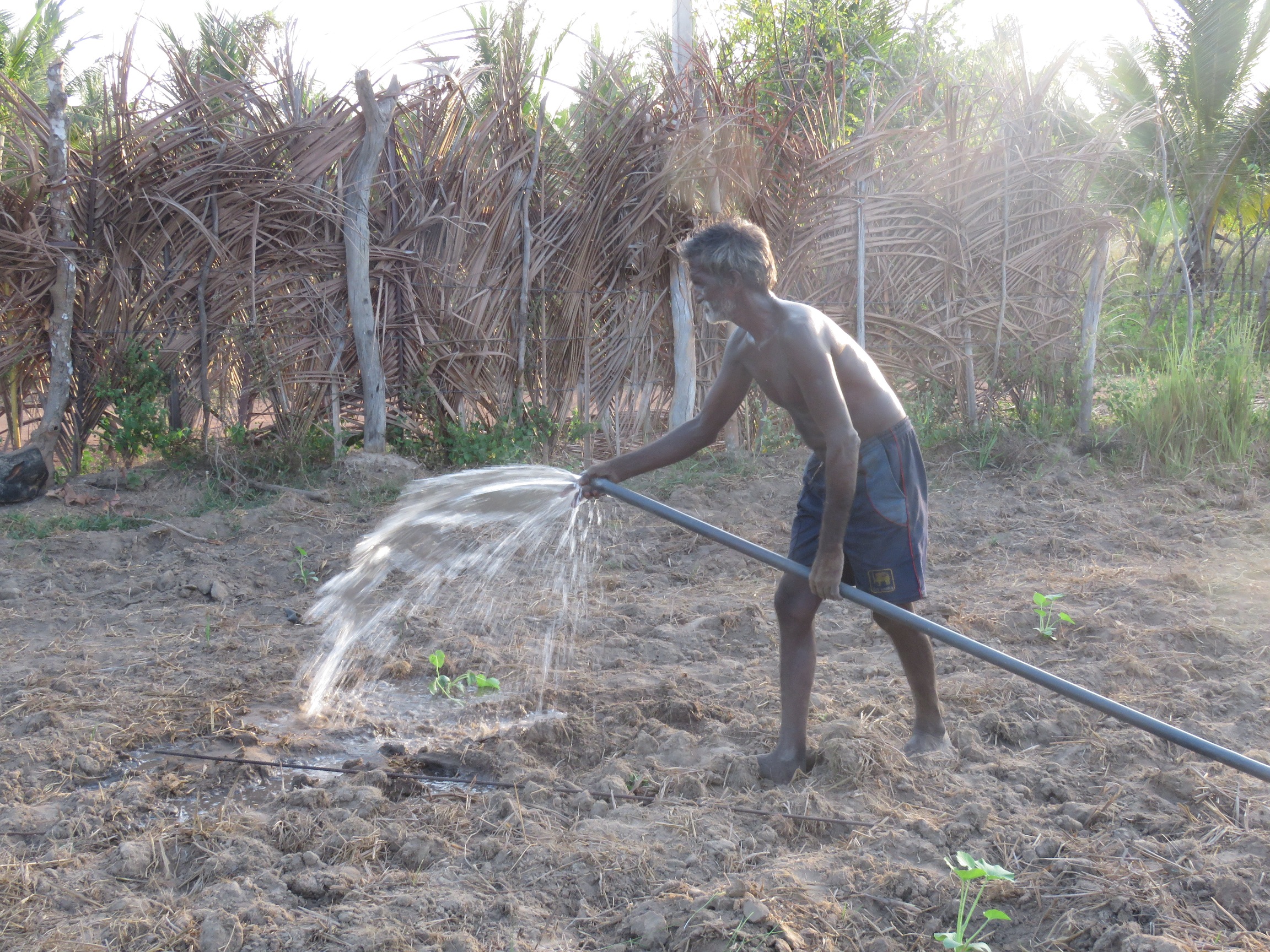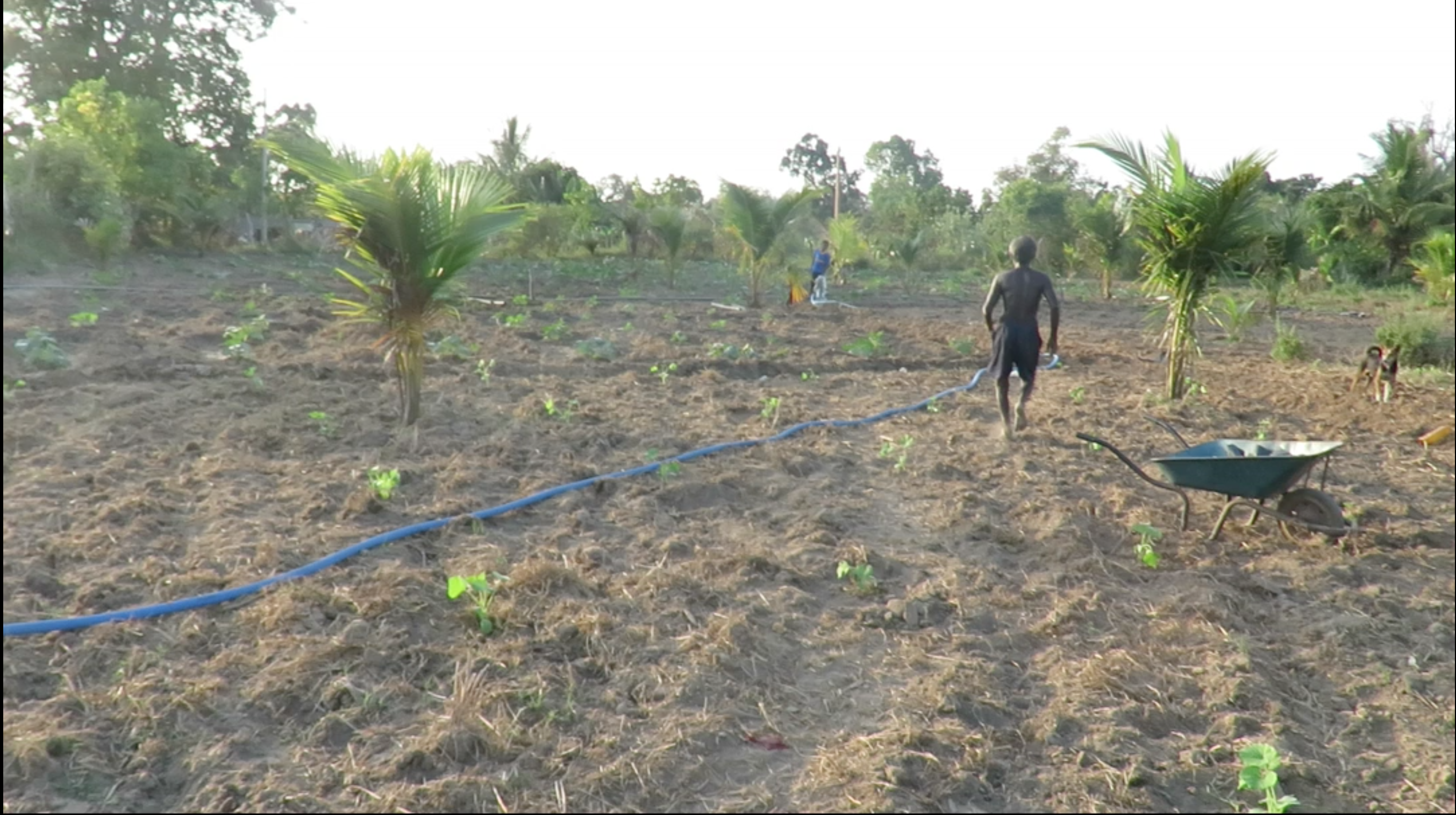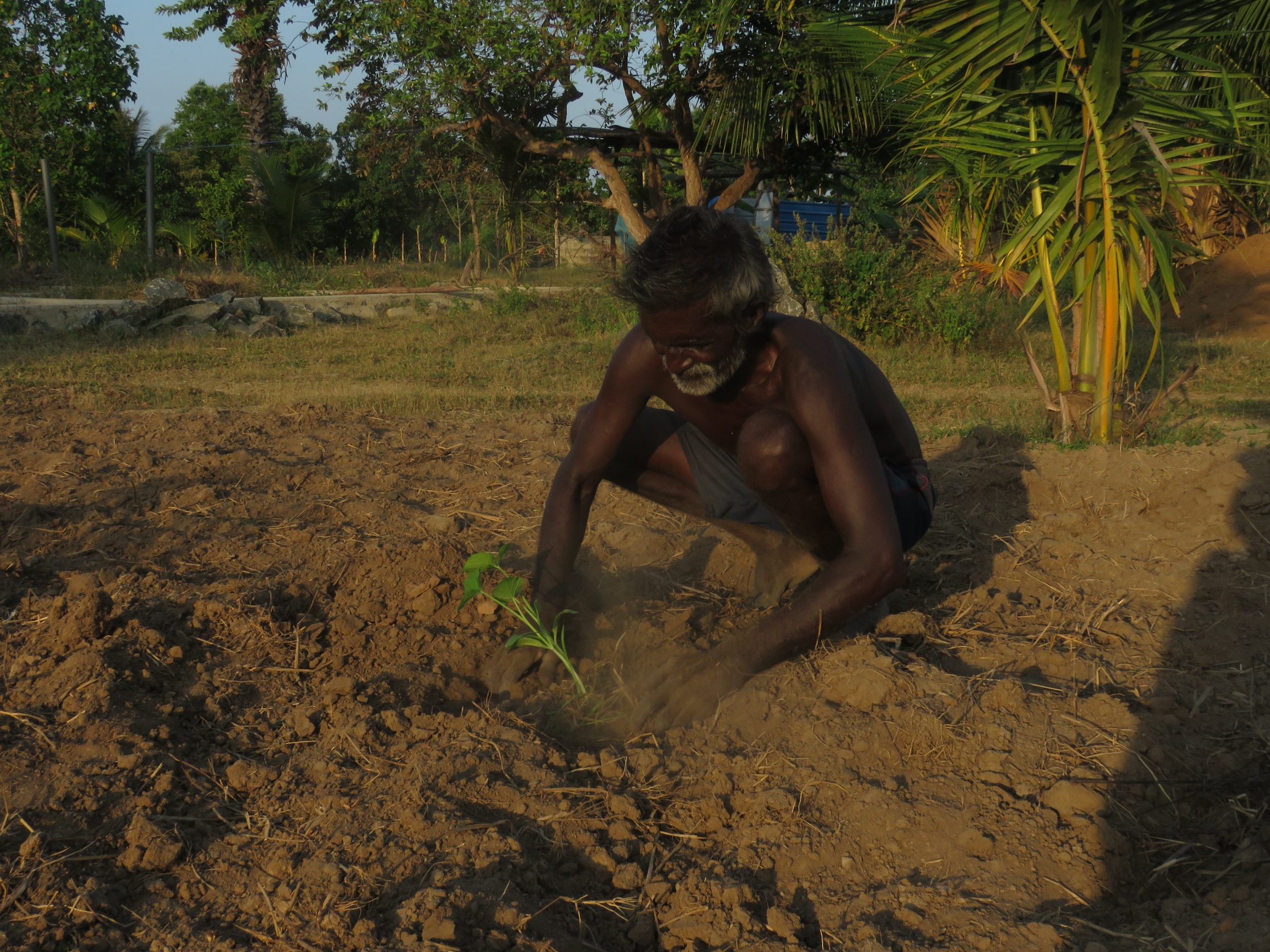Surviving genocide and a pandemic - 63 year old farmer Kittinan

21 May 2020
For many Eelam Tamils the month of May is already extremely tough, with the wounds of the Mullivaikkal genocide still fresh. For those still in the homeland though this year been particularly difficult, as the coronavirus pandemic and Sri Lanka’s military enforced curfew takes it toll on the livelihoods of many.
Chinnakannu Kittinan, a 63-year-old farmer, is amongst those who have been hardest hit – having suffered from both the massacres at Mullivaikkal and the state’s militarised COVID-19 response. And yet, he remains resilient, working through most of his day despite his age and the scorching sun, before going home to cook and care for his family.

Kittinan’s life begun in Maskeliya near Nuwara Eliya before he migrated to Puthukkudiyiruppu, Udayarkattu, aged just ten years old. From then he was put straight into work in many different labour jobs, including herding goats and sheep. Soon after, Kittinan left to Visuvamadu, where he took up work as a manual labourer. Then, in 1982, when he was twenty-five years old, he met his wife Lakshmi from Suthanthirapuram.
After their marriage, Kittinan and Lakshmi had three children. But tragedy first struck when six years into their marriage his wife passed away with health complications, leaving Kittinan to look after his three children alone.
“I brought up my three children alone with no help from anyone,” he tells the Tamil Guardian. “I often did labour jobs and farming here and there to look after for my children. I would work during the day and come home and cook for them.”
The spectre of war however, was never far and the family was to suffer another loss soon after.

His eldest daughter Maheshwari joined the armed struggle and was a fighter in the LTTE’s Maalathy Brigade. In the year 2000, she lost her life in a battle with the Sri Lankan military at Periyakulam in Jaffna.
Kittinan’s sorrows did not end there. In 2009 during the final stages of the Sri Lankan military’s massacre, Kittinan’s youngest child Krishnapillai, a cadre in the Charles Anthony Brigade, surrendered to the army. They have not been seen since and Kittinan still has no idea of their fate.
He is one of the hundreds of Tamil parents that the Sri Lankan government still refuses to answer to, regarding the fate of the forcibly disappeared. Kittinan’s is now living with his second and now, only child.
After the massacres at Mullivaikkal, they were both detained at a camp before being released. Despite the atrocities that they had been submitted to, Kittinan tried to work up hope for the future. Like any other farmer, Kittinan was excited to harvest his coconut trees that he had cherished and care for. By the time he was allowed to return, wild elephants had damaged all his yield.
Even after all he had endured - he still refused to give up after this. Kittinan’s determination led him to start again and he planted a dozen more! And with years of toil, he began to harvest ladyfingers and beans among many other vegetables over the years. The annual harvest festival of Thai Pongal marked every year remained a highlight for farmers like Kittinan, where alongside Tamils around the world he would mark the end of the winter solstice and give thanks for a bountiful crop.
“I wouldn’t say we were making a big profit out of this,” he explains. But it was enough to keep Kittinan and what was left of his family going.
Unfortunately, Sri Lanka’s militarised response to the coronavirus pandemic has now hit his him hard. A military-enforced curfew means now he’s unable to sell vegetables as he used to before. His profit margins were always quite small he explains, as he showed us around his farm.
“But because of the pandemic, I can’t sell the vegetables now,” he adds. “It’s a huge loss for me.”
“If I do sell them, it’s not by the kilo, sometimes we give them more,” he explains.
The agricultural industry across the North-East has been suffering badly. For farmers, Kittinan says that if a crop fails, they can’t simply start again the next year. They will have to work as a manual labourer to be able to afford to even do that again.
“If a businessman is at a loss for the first two days, he will recover on the third,” he says. “But it’s not the same for us working as labourers so that we can farm.”
Having suffered the loss of his wife and two children, survived decades of armed conflict and lived through displacement, Kittinan’s continued determination is remarkable, and a sign of the resilience of the Tamil people.
But faced economic disaster and further militarised lockdowns by the state, the road ahead remains uncertain.



No comments:
Post a Comment
Note: only a member of this blog may post a comment.